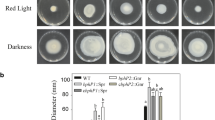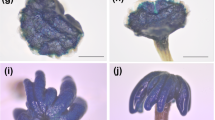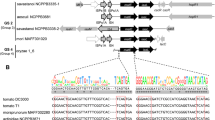Abstract
The near-UV component of sunlight decreased culturability of the leaf epiphyte and plant pathogen Pseudomonas syringae. Exposure of the wild-type cells for 4 h to UV-A and UV-B in sunlight was ten fold more detrimental than exposure to sunlight with just UV-A. Sensitivity to UV-A especially increased in a mutant of P. syringae lacking the global regulatory sigma factor, RpoS. No RpoS-mutant cells were culturable after 4 h of exposure to near-UV sunlight. These findings suggest that both UV-A and UV-B wavelengths cause damage to the bacterial cell and that the RpoS protein regulates protective measures for the leaf-associated pseudomonad.
Similar content being viewed by others
Author information
Authors and Affiliations
Additional information
Received: 6 February 2001 / Accepted: 3 April 2001
Rights and permissions
About this article
Cite this article
Miller, C., Mortensen, W., Braga, G. et al. The rpoS Gene in Pseudomonas syringae Is Important in Surviving Exposure to the Near-UV in Sunlight. Curr Microbiol 43, 374–377 (2001). https://doi.org/10.1007/s002840010319
Published:
Issue Date:
DOI: https://doi.org/10.1007/s002840010319




